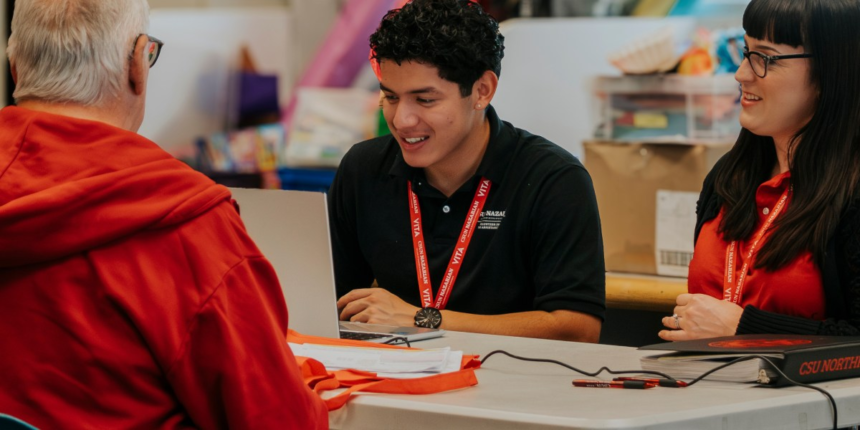America’s tax system is more complex than ever, but accountants are in short supply. Between IRS leadership turnover, tax policy fights, and burnout, more professionals are leaving the industry just when taxpayers need them most.
Now Gen Z is coming to the rescue.
One was a goat farmer who had only a landline and no access to the internet. Another was a young woman who was financially supporting her sister. Kelley was able to help them obtain a life-changing $6,000 back in refunds. One of Kelley’s peers, Tristan Klascius—a student studying accounting and finance—helped an older woman gain access to her much-needed Social Security income that she otherwise couldn’t figure out.
Kelley and Klascius are just two examples of the Gen Zers who are increasingly viewing accounting not as a monotonous chore but as a way to transform people’s lives.
Their actions are already helping save Americans millions of dollars through free tax help through a partnership with the IRS and close to two dozen universities.
The IRS’s VITA program began over 50 years ago at California State University, Northridge to aid low-income and underserved communities in navigating the increasingly complicated tax system.
In 2024 alone, an army of more than 280 CSUN students helped over 9,000 low-income taxpayers claim nearly $11 million in tax refunds and $3.6 million in tax credits—plus save them over $2 million in tax preparation fees.
In the weeks leading up to tax day, some students work from 10 in the morning until 10 at night, helping families understand how much money they could get refunded or owe.
The CSUN program’s director, Rafael Efrat, tells Fortune VITA at universities is an embodiment of the good that can come out of the accounting profession and reshape the views of hundreds of young people.
Even Gen Zers outside of the business school—studying subjects like computer science, public health, and psychology—have been eager to join the tax assistance program.
“While accounting may have a certain image in the background among young people of being not as intriguing and exciting, once they actually engage in the practice and see how it plays out in a real world, it changes people’s mind and views,” Efrat says.
It’s not just low-income Americans getting their taxes filed for free who are set to gain from VITA programs. The student volunteers, too, are obtaining unique hands-on skills by working with clients with sometimes complicated tax situations and gaining the confidence needed to excel on day one when they graduate and land a six-figure-paying job.
“We throw the students into the water, essentially, and let them swim, and then students actually live up to the challenge,” Efrat says.
According to Logan Steele, an accounting professor at OSU, many young people have an outdated view of what an accountant actually does. No longer do practitioners spend their time performing manual calculations on paper spreadsheets. Accountants have outsourced much of the mundane tasks to technology like AI, and they’re now more focused on strategic decision-making.
However, the tide is beginning to turn, he says. Nearly all accounting graduates at OSU—98%—secure jobs in the field, he says, and their salaries are the highest in recorded history of any major program in the business school.
More on taxes:









